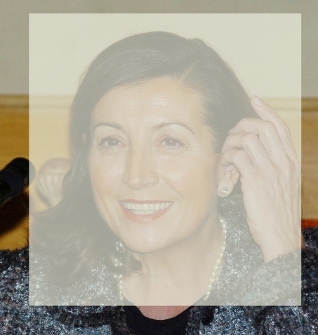BOOKS
IO DONNA E MADRE
I would not like to be out of place in the group of mothers who tell their stories to Emanuela Zanotti. I, a bachelor,have to confess to feeling wrongfooted by their statements, not so much for the radical strength of some of them, as for the determination with which they speak out. They show neither old style exaggerations nor the fear to compete with the male world,aware that they know more about life and that they can face it, with more courage. In the book you can have a proof, in different but at the same time similar situations of what being a mother and wife or simply a mother,means in our country today. You can have a proof of how much women have grown despite their condition of inferiority, to which they seemed to be condemned; a condition which was hidden by their roles of heroic mothers and loving wives. “Before the great events of life we are all beginners”Thomas Mann maintained,as Silvia Vegetti Finzi says. Men,we could add,are more beginners than women.It is true that in the book there are only portraits of people who are socially and professionally well-known (except for one whose being anonymous makes the story even more touching). The frankness of the language,the awareness of their role, which is not only maternal and familiar,but also social and political make the reading of this book, disturbing but constructive. Despite the exaltation of “the woman’s genius” as John Paul II loved to define it, in our country the number of women who hold high positions in political life is still limited.They meet hostility when they dare to claim what should be theirs by right. This hostility emerges when a woman lives a happy life having reached a balance between her family and her job, when she meets the difficulties of working and taking care of her family,or when she finds herself, by force or by chance, outside the rules of society or of the Church.In this light, we could consider the new relations that they have set up with faith, the morals and the Church. Today women do not accept the rules imposed by society and religious authorities passively; they want to debate, to discuss even if all this creates suffering. Reflections upon women’s conditions, before being analysed by sociologists, churchmen and politicians, have being analysed by women themselves with awareness and courage. These women do not pose as heroines,they have a great capability of adapting themselves to everyday life, and they give their love to their husbands, to their children without asking anything in return. They act as if they had to accomplish a mission. The motherhood that emerges from these “confidential reports”- it does not matter whether it manifests itself in the most traditional motherhood, or in a motherhood which is the result of an adoption or of a trust or in a more spiritual motherhood like the one of Mother Anna Maria Canopi – is always a tough task, no matter whether it is shared with sensitive partners, or it is lived in solitude because of a separation or abandonment. The book is worth reading: the different experiences, the different situations, the skilful of quiet,restless and controversial women make the book a sort of “teacher of life”. It surprises the reader especially when you read of people who you think you know very well, famous people for instance,but of whom you only know their exterior aspect not their most intimate feelings. What story has struck me most? The one told by Bianca Maria Tonani summarized with effectiveness in her sentence “What a lot of stairs I have climbed in silence”. The most amusing cue? “ It has been Bach”, by Gina Lagorio. The book is really worth reading!
